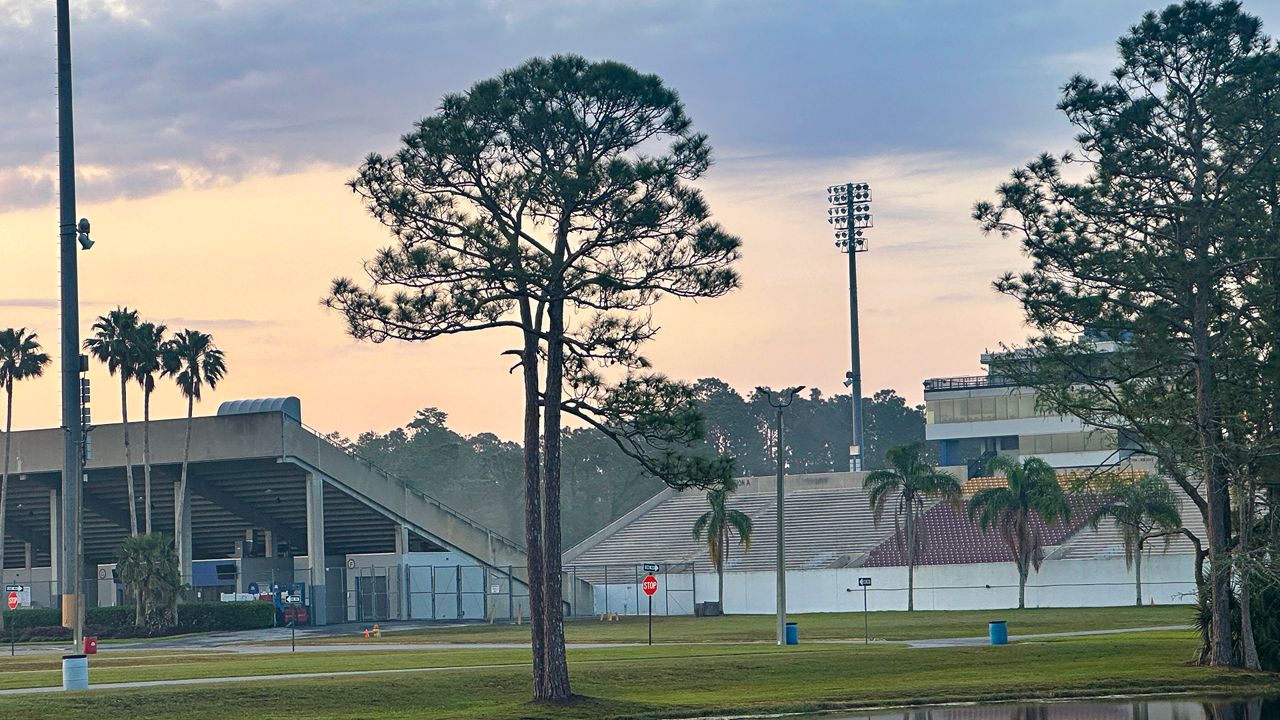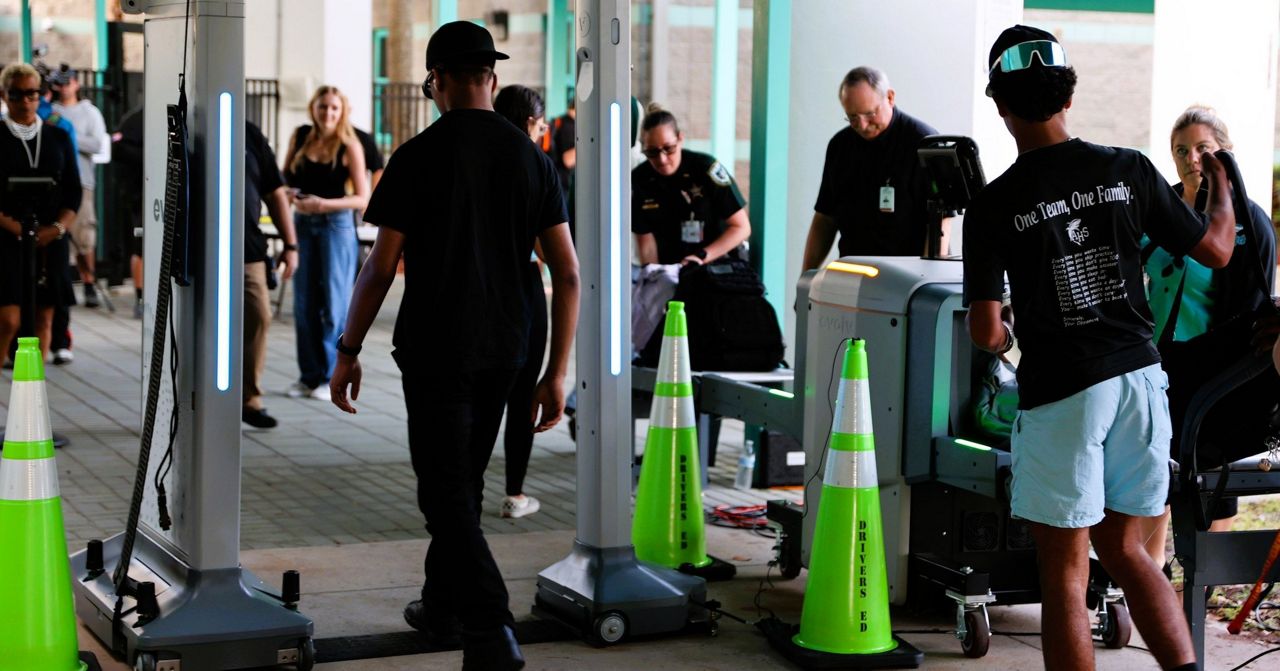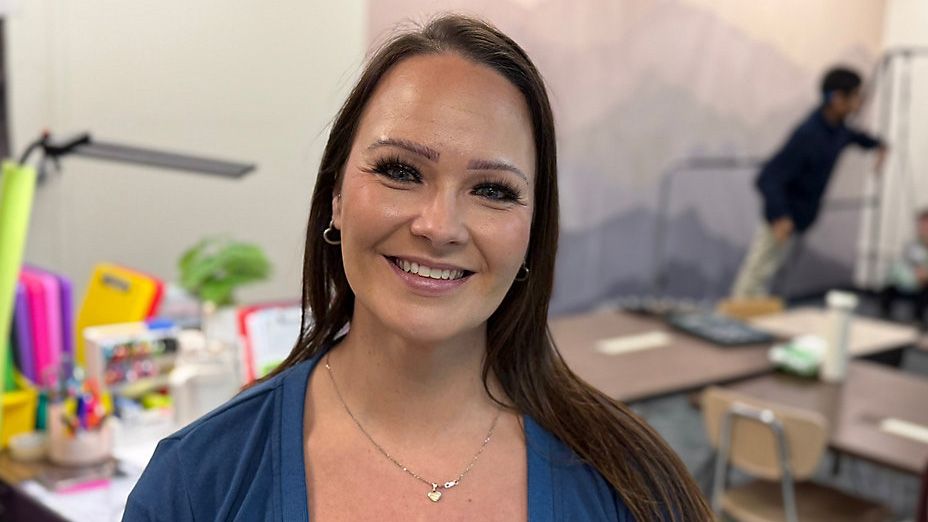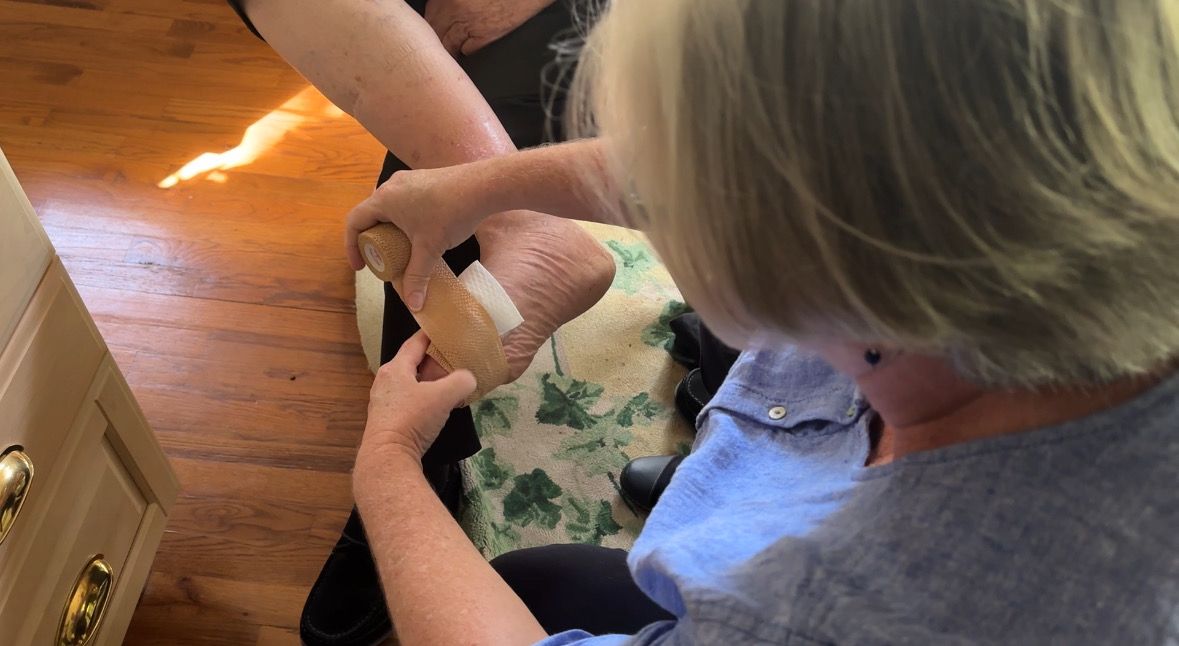NEW SMYRNA BEACH, Fla. — The Marine Discovery Center’s oyster recycling program, Shuck & Share, has kept more than one million pounds of oyster shells out of the landfill. The program recycles shells from a dozen restaurants across Volusia County and uses the shells for habitat restoration projects in the Indian River Lagoon.
The Marine Discovery Center’s Shuck and Share program started in 2013 to recycle oyster shells and use them for Indian River Lagoon restoration projects.
Here’s how it works:
Twelve restaurants in Volusia County participate in the program.
When you order oysters at any of the participating locations, the shells are saved and brought to the MDC once a week.
From there, the shells are quarantined for a minimum of six months before they are ready to be used for projects, like oysters mats.
Tess Sailor-Tynes is the Conservation Science co-ordinator for the MDC. To make oyster mats, the MDC uses biodegradable lattice structures known as potato mats.
“These mats come to us from the Netherlands,” Sailor-Tynes said. “They’re actually a combination of potato chip waste from the factories over there.”
They are used to make oyster mats that grow new oyster reefs in the Indian River Lagoon. Sailor-Tynes said that reefs in the area have been degraded over time through both natural events and human interactions, like boating.
“Those boats are putting out excess wake energy, and that typically pushes these oysters out of place,” she said. “So, they’re not able to feed and they’re not able to survive.”
Sailor-Tynes said the mats help to create successful ecosystems once again. She said her passion for the job is preserving and protecting natural habitats.
“My passion behind the work is making sure that we are recreating responsibly and interacting responsibly with those natural habitats so that future generations can have them,” she said.
Multiple times a week, volunteers gather at the MDC to help assemble the oyster mats.
“These volunteers are going to come together and they are going to attach those recycled oyster shells to the biodegradable mats,” Sailor-Tynes said.
The recycled oysters are attached to the mats with stainless steel zip ties. When the mats are placed in the Indian River Lagoon, the empty shells will act as habitats for oyster larvae. The zip tie process is repeated until the mats are full of shells. Since 2014, over a million pounds of oyster shells have been recycled and kept out of landfills.
“All of that has been diverted from the landfill and instead used for those restoration practices where we are stabilizing shorelines, creating habitat and supporting the biodiversity of the Indian River Lagoon,” Sailor-Tynes said.
After the mats are assembled, they’re taken to the lagoon, where volunteers and researchers load the mats onto boats. Some of the organizations that work with the Marine Discovery Center on the Shuck and Share program include the University of Central Florida, the Florida Fish and Wildlife Conservation Commission, the Coastal Conservation Association Florida and Waste Pro. After being loaded onto boats, the oyster mats are taken to sites where they’ll restore degrading oysters reefs. Not only will they create the next generation of oysters, they’ll also filter the water.
“We’re looking at about 25 to 50 gallons of water filtration per oyster per day, which is pretty significant,” Sailor-Tynes said.
Sailor-Tynes said the materials on the mats will break down after the oysters have sustained themselves. For her, the Shuck and Share Program is all about restoring habitats and giving life back to reefs.
“We’re restoring them back to the proper elevation and then giving them the proper habitat to attract larval oysters so that later down the road they can be self-sustaining habitats,” she said.
Oyster recycling programs are also available in eleven other Florida counties, including Orange, Flagler and Brevard. For more information about the Shuck and Share Program in Volusia County, visit the Marine Discovery Center’s website. The following Volusia County restaurants participate in the program:
63 Sovereign (Ormond Beach)
The Baker’s Table (New Smyrna Beach)
Chase’s on the Beach (New Smyrna Beach)
City Market Bistro (New Smyrna Beach)
Goodrich Seafood Restaurant and Oyster House (Oak Hill)
McKenna’s Place (New Smyrna Beach)
McKenna’s Place Port Orange (Port Orange)
Off the Hook Raw Bar & Grill (New Smyrna Beach)
Off the Hook at Inlet Harbor (Ponce Inlet)
Outriggers Tiki Bar & Grille (New Smyrna Beach)
Riptides Raw Bar & Grill (Ormond Beach)
Stoney Farms Crab Shop (Daytona Beach)
Reagan Ryan is a 2023 — 2025 Report for America Corps Member, covering the environment and climate across Central Florida for Spectrum News 13. Report for America is a nonprofit national service program that places journalists in local newsrooms to report on under-covered issues.









